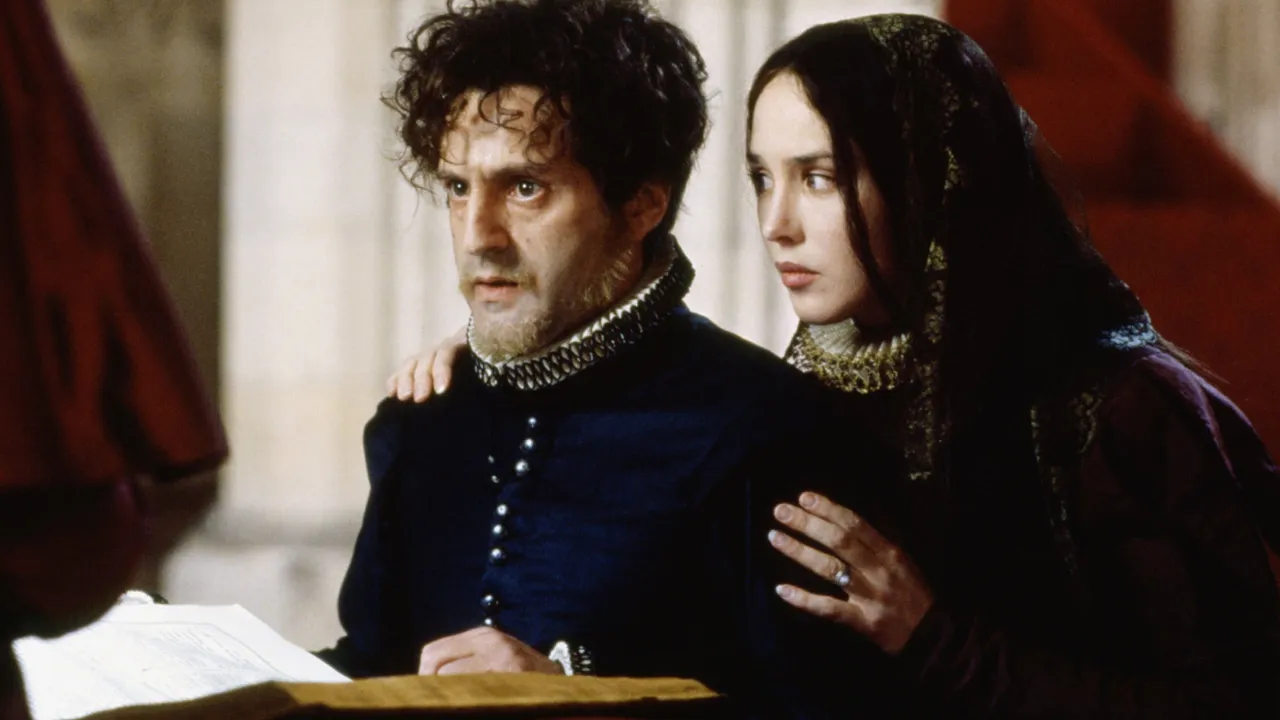
Imagine this. You are the leader of the most popular rock band in your country. Then one day your country starts to dissolve in a vicious ethnic war and even your home town becomes a battlefield, with many of your best friends ending on different sides and shooting at each other. In the general confusion you make some wrong moves and, before you know it, you are suddenly a traitor. It doesn't matter whether you are or not, because you are denied opportunity to explain yourself after some locals take great pains to show how unwelcome you are in your former neighbourhood. They plunder your home, find some very private home videos, sell it to the media and soon your former country is able to comment on certain parts of your anatomy. That might look like really unfortunate set of circumstances, but for Goran Bregović his exile from war torn Sarajevo proved to be start of new, even more spectacular career of film music composer. One of the first titles to exploit Bregovic's talent was Queen Margot, 1994 French historical spectacle directed by Patrice Chereau.
The plot of this film is based on the historical novel by famous 19th Century French author Alexandre Dumas Father and, ironically, its plot has many things in common with the unpleasantness that had driven Bregović from his country. France in the second half of 16th Century was experiencing one of the darkest periods of its history. Religious differences between Catholics and reformist Huguenots led to brutal civil war. Fanaticism, interference by opportunistic foreign powers and both sides' inability to gain decisive advantage resulted in years of carnage, occasionally interrupted by brief and often worthless armistices. In 1572 Queen Mother Catherine de Medici (played by Virna Lisi), the leader of Catholic faction, uses one of such occasions as an opportunity for long lasting peace and arranges marriage that would symbolise national reconciliation. Her rebellious and promiscuous daughter Margot (played by Isabelle Adjani) is to marry Henry (played by Daniel Auteiul), Protestant king of Navarre. Henri arrives in Paris followed by thousands of Huguenots, including their faction's leader Admiral Coligny (played by Jean-Claude Brialy). After the wedding, it turns out that Coligny is gaining influence over young King Charles IX (played by Jean-Hugues Anglade). Queen Mother wants to stop it and arranges Admiral's assassination. The attempt is unsuccessful and Queen Mother, fearing revenge from Coligny's followers, decides to take much more drastic steps that would result in the infamous event known as St. Bartholomew's Night.
While most people associate Dumas with spectacular swashbuckling adventures like The Three Musketeers and The Count of Monte Cristo, few would see anything spectacular or amusing in Queen Margot. The tone of the film is quite serious and often depressive from the beginning to the end, and Chereau uses photography by Philippe Rousselot to this effect. Picture of France in 1572 is uncompromisingly bleak and unattractive. The streets are filthy and the French Court is the place filled with incest, sexual perversions, marital infidelity, poisoning and endless intrigues. Hyper realistic depiction of this every day bleakness is followed by Chereau's equally uncompromising depictions of St. Bartholomew's Night and its aftermath - scenes that were in many ways similar to the horrors of 1990s former Yugoslavia. It is hardly surprising that Bregović used songs from his ravaged home country in order to illustrate such events on screen.
Huge contrast to all this ugliness is created by casting of Isabelle Adjani in a title role. Stunningly beautiful French superstar with her icy look seems quite convincing as the promiscuous princess, same as extremely unattractive Virna Lisi as one of the most notorious women in world's history. Jean-Hugues Anglade is also good as young son, while Daniel Auteuil provides interesting portrayal of pragmatist monarch. Unfortunately, the casting, the look and the general atmosphere of the film still can't compensate the problems in the film's content. Naturalistic approach to the French history is compromised with the cheap melodrama. Chereau made the character of Margot so unattractive that the viewers probably wouldn't care for her romance with young Huguenot La Molle (played by Vincent Perez). They would probably be more interested in the political intrigues instead, but Queen Margot lacks proper closure, obviously relying too much on the French audience and its familiarity with history textbooks. Yet, even for those who hadn't heard lectures about those events in school are going to be somewhat familiar with the subject of this film. It is enough for them to watch CNN and imagine situations not very different from those depicted in this film. Because of that Queen Margot is going to leave strong impression and that is something few historical movies are able to do these days.
RATING: 6/10 (++)
(Note: The text in its original form was posted in Usenet newsgroup rec.arts.movies.reviews on September 13th 2002)
==
Blog in Croatian https://draxblog.com
Blog in English https://draxreview.wordpress.com/
Cent profile https://beta.cent.co/@drax
Minds profile https://www.minds.com/drax_rp_nc
Brave browser: https://brave.com/dra011
BTC donations: 1EWxiMiP6iiG9rger3NuUSd6HByaxQWafG
ETH donations: 0xB305F144323b99e6f8b1d66f5D7DE78B498C32A7
Movie URL: https://www.themoviedb.org/movie/10452-la-reine-margot?language=en-US
Critic: AA

